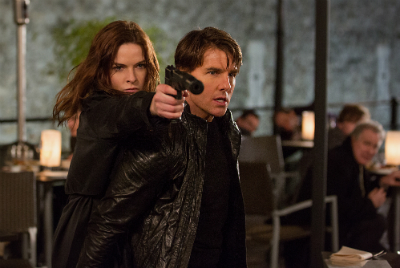
While you may have to hunt around a bit to find a theater playing the indie film, The Stanford Prison Experiment, it will be well worth it if you enjoy thrillers based on true stories. The film is based on a Stanford University psychology study performed in 1971 where 24 students voluntarily applied to act out as either prison guards or inmates. Each was paid $25 a day, (a nice chuck of change back then), but it did require the inmates to stay in their mock prison 24 hours a day. The “guards” were to work either the day shift of the night. The study was to last for two weeks but they only made it through six days.
Billy Crudup gets all the accolades for playing the role of professor Dr. Philip Zimbardo, which he does an excellent job, but the tensions rests in the hands of the character actors playing the students who either give a chilling performance as intimidating guards or persecuted inmates. The film is a surprising psychological thriller, probably more so because it is based on true events. The real Dr. Zimbardo himself was on hand during the making of the film to assure its accuracy.
After a series of interviews, the 24 men were told that they were selected for their roles based on their talents or personalities or something, but in reality, they were chosen by a flip of a coin. Those chosen as inmates begin the experiment quite jovial, while those made into guards take their jobs too seriously. The inmates are stripped of their clothing, (given rag dresses to wear instead of pants and shirts) and given numbers instead of names. The guards are all dressed alike and wear sunglasses to appear unified. Rules are given in the form of a contract that each participant signs stating that no one is to touch the others in any way.
The tension in this film sneaks up on you. One moment, the guys are playing around with each other but in no time at all, the mock guards become power hungry and create unrealistic and unnecessary tasks for the inmates to carry out just for fun. As tempers flare and push comes to shove, some of the inmates call “foul” on the breaking of the contract’s rules, but they are mostly ignored. The situation takes a toll on the weakest participants who start to believe that they are no longer a part of an experiment, but actually living in a prison. What is most chilling is that all this strange behavior happens under the watchful eyes of Zimbardo and his helpers with the study. One of those helpers has spent time in real prison, so he helps keep things real.
In the end, the film is a cautionary tale of how easy it is to abuse power and take advantage of others regardless of who you are. One of the guards made it very clear in his interview that he could never see himself acting as a guard and in the end, he becomes one of the worst. By the sixth day, some of the guards start to break down while others are having the time of their lives. And while no one actually dies from the event, the humiliation and break down of the inmates’ psyches is enough to make your stomach turn. The professor himself is guilty of letting things go too far and is stunned to find out what he has become in the process as well.
By watching the film, you would think that you would have a lot to talk about afterward, but in a way, it just makes you feel numb, but definitely worth while to see.

